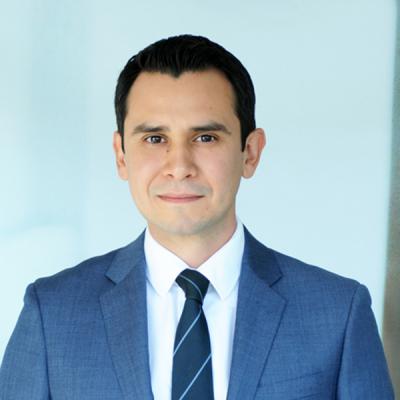TCPA Judicial Update: “You're Only Half Right!” - D.C. Court Sets Aside Commission’s Ruling on Two Issues, Upholds its Position on Two Others
The U.S. Court of Appeals for the District of Columbia released its long-awaited opinion on the Telephone Consumer Protection Act (“TCPA”), reversing in part and upholding in part the Federal Communications Commission (“FCC”) 2015 TCPA Declaratory Ruling and Order (“2015 R&O”). The 2015 R&O, decided under former FCC Chairman Tom Wheeler, was met with some controversy – particularly surrounding its expansive interpretation of what constitutes an Automatic Telephone Dialing System (“ATDS”) – and drew vigorous dissents from then-minority Commissioners Ajit Pai and Michael O’Rielly.
Four main issues were raised in the appeal of the 2015 R&O: 1) the FCC’s determination regarding the equipment that constitutes an ATDS; 2) the FCC’s approach to reassigned numbers; 3) the FCC’s approach to the revocation of consent; and 4) the scope of the FCC’s exemption for time-sensitive healthcare communications. The Court set aside the FCC’s ruling on the first two issues and upheld its position on the final two.
1. Devices that Constitute an ATDS
The TCPA generally makes it unlawful to call wireless numbers using an ATDS, unless the caller obtains prior express consent from the called party. The statute defines an ATDS as “equipment which has the capacity—(A) to store or produce telephone numbers to be called, using a random or sequential number generator; and (B) to dial such numbers.” In its 2015 R&O, the FCC determined that “capacity” means not only present capacity, but also “potential functionalities” or “future possibility.” This interpretation had the impact of broadening the scope of equipment subject to the TCPA to potentially sweep in all common smartphones, which had the “capacity” to become autodialers with basic modifications such as software and application downloads. A number of parties and the dissenting Commissioners specifically raised this issue, arguing that mere text messages from a personal iPhone could be subject to the minimum $500 penalty. The FCC responded not by disputing the concerns, but by accepting this conclusion.
Despite its position in the 2015 R&O, the Commission argued to the Court that the 2015 R&O left open the possibility that smartphones did not meet the definition of an ATDS. The Court found that, because the Commission’s 2015 R&O could not reasonably be read to support this conclusion, the Commission’s position is “arbitrary and capricious” under the Chevron framework.
The Court also found that the 2015 R&O did not provide clear guidance on ATDS actions that constitute TCPA violations – whether a device must have the capacity to generate lists of random or sequential numbers, or actually dial them. It found the competing FCC views on this question in past TCPA orders failed the requirement of reasoned decision making, and set aside the Commission’s findings.
2. Calls to Reassigned Numbers
The FCC found in the 2015 R&O that calls to reassigned numbers violated the TCPA, except for a one-call, post-reassignment safe harbor. Although the Court agreed that the FCC could interpret the TCPA to prohibit calls without consent to the “called party” rather than the “intended recipient,” it set aside the FCC’s interpretation on the grounds that the one-call safe harbor was arbitrary and capricious.
The FCC had earlier declined to adopt a strict liability standard for reassigned numbers because it interpreted a caller’s ability under the statute to rely on a recipient’s prior express consent to mean “reasonable reliance.” Yet the one-call safe harbor, the Court concluded, is inconsistent with the reasonable reliance approach because the first call or text may give the caller absolutely no indication that the number has in fact been reassigned. In such a case, the Court determined, “a caller’s reasonable reliance on the previous subscriber’s consent would be just as reasonable for a second call.” Because the FCC gave no reasoned “explanation of why its safe harbor stopped at the seemingly arbitrary point of a single call or message,” the Court set aside the one-call safe harbor, and hence the FCC’s broader approach to reassigned number liability under the TCPA.
3. Revocation of Consent
In the 2015 R&O, the FCC found that “a called party may revoke consent at any time and through any reasonable means”—orally or in writing—“that clearly expresses a desire not to receive further messages.” The Court upheld this “reasonable means standard,” rejecting arguments that the uncertainty in revocation methods will force callers to take exorbitant precautions. The Court pointed out that creating clearly defined and easy-to-use standard opt-out methods will reduce efforts by consumers to sidestep such methods in favor of idiosyncratic ways of revoking consent, and if they do, that choice might well be seen as unreasonable, shielding the caller from liability. The Court noted that the FCC did not address whether callers and called parties could contractually agree on acceptable revocation procedures.
4. Wireless Healthcare Communications
The 2015 R&O established an exemption from the TCPA’s prior consent requirement for certain healthcare-related calls to wireless numbers. The FCC limited this exemption to “calls for which there is exigency and that have a healthcare treatment purpose, specifically: appointment and exam confirmations and reminders, wellness checkups, hospital pre-registration instructions, pre-operative instructions, lab results, post-discharge follow-up intended to prevent readmission, prescription notifications, and home healthcare instructions.” It explicitly chose not to exempt healthcare-related telemarketing, solicitation, billing, and other financial content. Seeking to also exempt additional healthcare communications such as medical billing, Rite Aid challenged this exemption, arguing that the Commission improperly limited its scope, leading to a conflict with the Health Insurance Portability and Accountability Act (“HIPAA”). The Court upheld the scope of the FCC’s exemption, finding that the TCPA operates on its own force, and the FCC was not required to exempt communications merely because they are permissible under HIPAA. The Court also found that it was acceptable to have different approaches to calls made to wireline and wireless phones.

TCPA Regulatory Update: FCC Releases Second Further Notice of Proposed Rulemaking
March 20, 2018| Article
Authors



